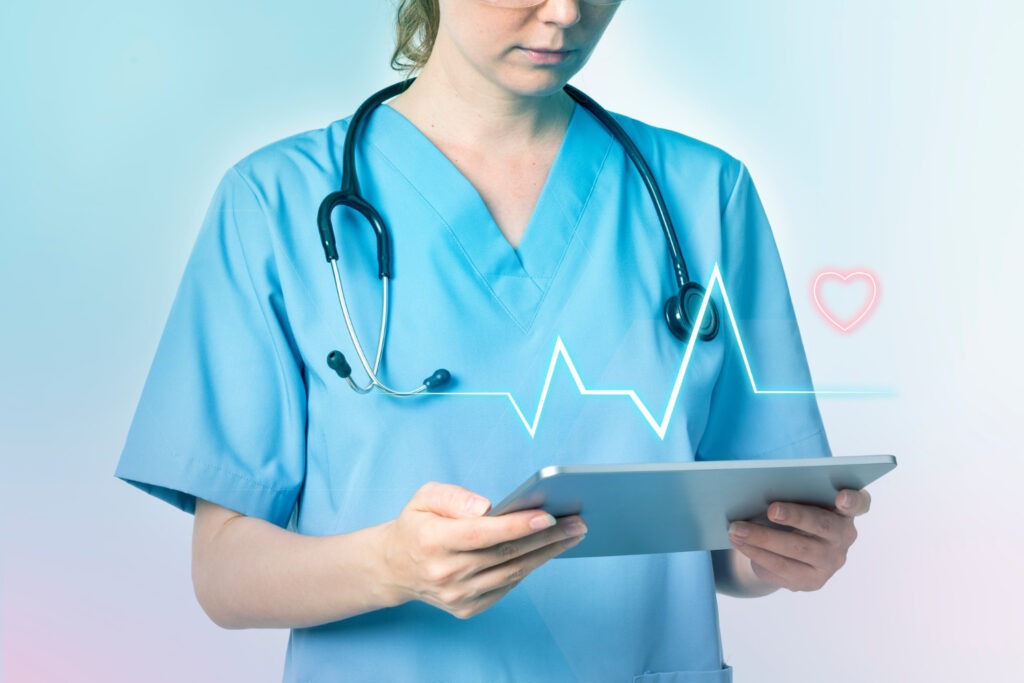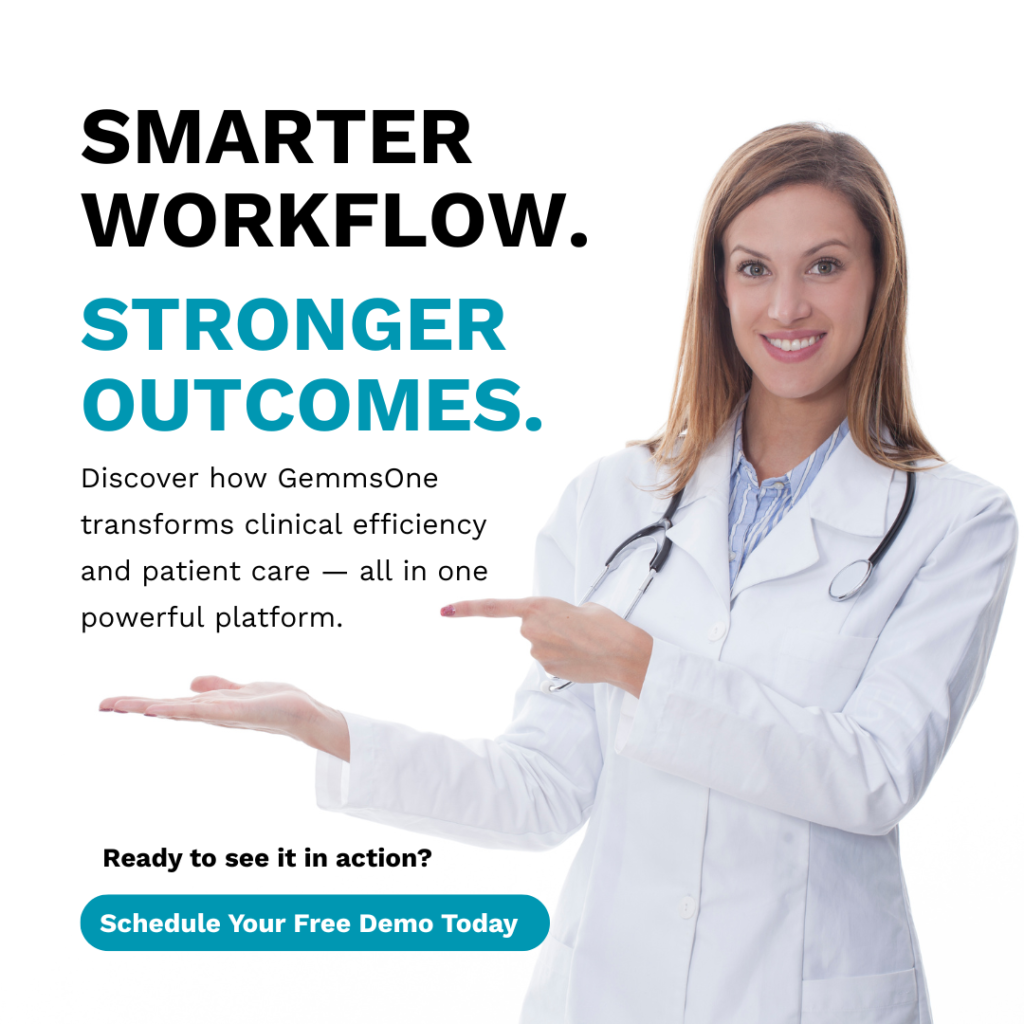Cardiology is an evolving field, and staying ahead with the latest technological advancements is paramount in delivering efficient, top-notch care. Embracing and implementing cutting-edge technologies allows cardiologists to provide the highest quality care and stay at the forefront of medical advancements.
Electronic Health Record (EHR) software has revolutionized the way cardiology clinics and healthcare facilities manage patient data, streamline workflows, and improve overall practice efficiency. As we progress through 2023, it’s the perfect time to explore the latest trends shaping the use and application of EHR software in cardiology.
Here are the latest trends, updates, innovations, and applications of cardiology EHR software.
7 EHR Cardiology Trends for 2023
1. Integration of Cardiovascular Imaging
Cardiology heavily relies on advanced imaging techniques to assess cardiovascular health accurately. EHR software is increasingly integrating with cardiovascular imaging systems to facilitate seamless workflows. This integration enables cardiologists to access and review imaging studies directly within the EHR platform, such as echocardiograms, stress tests, and angiograms.
The ability to view and interpret imaging results in conjunction with patient data empowers cardiologists to make more informed diagnoses and timely treatment decisions.
Furthermore, advanced EHR systems are now equipped with intelligent algorithms that can analyze imaging data, assisting cardiologists in detecting subtle abnormalities and identifying potential cardiovascular risks.
2. Enhanced Cardiac Device Management
With the growing prevalence of cardiac devices, including pacemakers and implantable cardioverter-defibrillators (ICDs), cardiology EHR software is evolving to meet the specialized needs of device management.
Modern EHR systems offer dedicated module tracking device information, including implantation dates, settings, and battery life. Moreover, advanced software can integrate with remote monitoring systems, enabling real-time device data transmission directly to the EHR platform.
Cardiologists can conveniently review device diagnostics, remotely adjust settings, and receive automated alerts for device malfunctions or significant changes in patient conditions. This integration ensures seamless communication between device clinics, cardiology practices, and patients, leading to more proactive and personalized cardiac device management.
3. Integration of Risk Stratification Tools
Accurate risk stratification is paramount in cardiology to guide treatment decisions and prevent adverse events. Recognizing this need, modern EHR software integrates sophisticated risk stratification tools directly into the platform. These tools leverage advanced algorithms and artificial intelligence to analyze patient data, including demographics, medical history, and diagnostic test results, to calculate personalized risk scores.
By incorporating risk stratification within the EHR workflow, cardiologists can efficiently assess patient risk profiles, identify high-risk individuals, and tailor treatment plans accordingly. This integration streamlines the risk assessment process, supports evidence-based decision-making, and improves patient outcomes.
4. Focus on Interoperability and Data Exchange
In today’s interconnected healthcare landscape, interoperability ensures seamless data exchange and collaboration among healthcare providers. Cardiology EHR software is no exception, and there is a growing emphasis on achieving interoperability with other healthcare systems and devices.
Industry standards such as HL7 FHIR (Fast Healthcare Interoperability Resources) are being implemented to facilitate the secure exchange of cardiology-specific data, including EKGs, cardiac catheterization reports, and discharge summaries.
This interoperability allows cardiologists to access comprehensive patient records from multiple sources, including referring physicians, laboratories, and hospitals. Improved data exchange promotes care coordination, reduces redundancies, and enhances the accuracy and efficiency of cardiology practice. For a deeper look at how reporting and analytics strengthen this process, explore these real-world EHR reporting use cases in cardiology clinics.
5. Enhanced Clinical Decision Support
Clinical decision support (CDS) tools have been instrumental in augmenting healthcare professionals’ decision-making processes. In 2023, the advancement of cardiology EHR software has focused on further enhancing CDS functionalities tailored specifically to cardiology practices. These tools leverage evidence-based guidelines, integrate risk calculators, and offer real-time alerts for potential drug interactions or contraindications.
With this comprehensive decision support at their fingertips, cardiologists can make well-informed treatment decisions, reduce errors, and optimize patient outcomes.
6. Telecardiology and Remote Monitoring
The global shift towards telemedicine and remote patient monitoring has significantly impacted cardiology practices.
Cardiology EHR software has kept pace with the evolving demands of healthcare by incorporating features that enable telecardiology consultations and remote cardiac patient monitoring. These technological advancements have greatly improved patient care and streamlined workflow for healthcare professionals in the cardiology field. These capabilities enable cardiologists to review patient EKGs remotely, monitor vital signs, and provide real-time guidance to patients.
Leveraging telecardiology and remote monitoring through EHR software, cardiology clinics, and healthcare facilities allow an extension of their reach, improve access to care, and enhance patient convenience.
7. Mobile Applications for Patient Engagement
Patient engagement is a crucial factor in ensuring better healthcare outcomes. Cardiology EHR software is leveraging mobile applications to enhance patient engagement and facilitate self-management of cardiovascular health.
These mobile applications enable patients to securely access their health records, view test results, schedule appointments, and communicate with their cardiologists. Moreover, patients can receive personalized reminders, track their exercise routines, and monitor vital signs using compatible wearable devices.
Cardiology clinics can foster a collaborative and proactive approach to managing cardiovascular health by empowering patients through mobile applications.
Exciting trends such as integrated cardiovascular imaging, advanced clinical decision support, telecardiology and remote monitoring capabilities, seamless interoperability, and patient engagement through mobile applications have the power to revolutionize your cardiology practice in 2023 and beyond.
Partner with GEMMS: Embrace Innovation for Enhanced Efficiency in Cardiology Care
Embrace the ever-evolving trends in the healthcare industry and unlock the potential of cutting-edge EHR software. You can propel your cardiology practice to unprecedented success by harnessing its power.
Position yourself as a leader in cardiology by embracing these trends, exploring innovative EHR solutions, and staying at the forefront of technological advancements.
GEMMS One offers outstanding cardiovascular software solutions to optimize clinical and practice management processes across the healthcare continuum. Our software seamlessly integrates with cardiology clinics and hospitals, empowering physicians to streamline workflows and enhance patient care. GEMMS ONE EHR can revolutionize your cardiology practice and propel it to new heights of efficiency and success.
To discover the transformative potential of our EHR software, schedule a demo. We are thrilled to provide you with comprehensive details and address any inquiries you may have.


